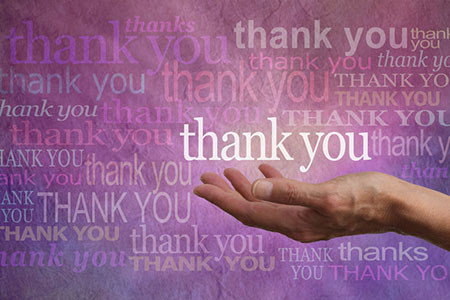humility
The Mystical Cycle Of The Moon
 Traditionally many cultures worldwide centered their spiritual practices around the Moon and the phases it cycles through once approximately every 29 days. These phases reflect the Moon’s journey around the Earth, revealing a little more or a little less of this mysterious satellite.
Traditionally many cultures worldwide centered their spiritual practices around the Moon and the phases it cycles through once approximately every 29 days. These phases reflect the Moon’s journey around the Earth, revealing a little more or a little less of this mysterious satellite.
Much like the cyclic seasons of the year, the Moon’s phases represent different aspects of personal contemplation for the spiritual practitioners and metaphysicians. The Moon represents our intuitions, hidden aspects of self, and the nurturing empathy a mother would show a child.
The New Moon begins and ends each lunar cycle. As a ‘blank canvas’ it suggests new beginnings, or the completion of a full circle. This is the starting point for working with the Moon’s phases. Time your lunar calendar each month around the New Moon. Note, it will not be visible, but instead a dark circle. Use a white candle or another source of light to represent the fully illuminated Moon that is to come and start new ideas or projects.
As the Moon grows in size it goes into its ‘waxing’ phase. It will first become a crescent shape a quarter of the way in its orbit around the Earth, and later a wedge shape called gibbous. As it grows, so too will you and your ideas. Each day, ask yourself what is going right. Ask the Universe for guidance and inspiration, and remember that it’s all right to change plans or make revisions.
As the Moon is in its growing phase, each day a little more of its surface is cast in light. The Moon also rises an hour later each day in the cycle. Its many craters are a reminder that despite perceived flaws, something can be wonderful when illuminated.
We are all awed by the sight of the Full Moon glowing in the sky. This is the time in the cycle when we can enjoy the fruits of our efforts, and also examine what worked or did not work in practice. This is also the time in the lunar cycle when emotions run at their highest, so be careful of acting too impulsively. Be sure to also show gratitude and humility for what you’ve accomplished so far.
A Sincere Apology Is Good For The Soul
 One of the most difficult things in life is knowing when to apologize. It is obvious in some situations, but in others not so much. There are times when we need to weigh out all our options. Is the situation worth an apology, even if you are not the one who created a problem?
One of the most difficult things in life is knowing when to apologize. It is obvious in some situations, but in others not so much. There are times when we need to weigh out all our options. Is the situation worth an apology, even if you are not the one who created a problem?
Knowing the right time to apologize is critical to the resolution. Was it done intentionally, or was it unintentional? Did the action cause others stress, worry, or pain?
You must also ask yourself if you can live without apologizing the rest of your life. Is it worth losing a friendship, leaving a group, resigning from a job, or not speaking to a family member ever again?
The good old Golden Rule can always come in handy in this dilemma. If you have done something that you would not want done to you, then apologize and seek atonement! Many people find it almost impossible to apologize. They struggle to acknowledge their own part in an argument or wrongdoing.
Some just do not seem to understand their actions were unacceptable, or they always feel that the world is out to get them. There is no compromise in their mind. They always try to twist every situation to make it seem like it is another person’s fault.
For some people, on the other hand, an apology seems to roll off their tongue a little too easily. When a sincere apology is made it must be followed by actions. Actions speak louder than words. By not repeating the offense, for example, it shows a true and sincere apology.
Sometimes all the other person needs to hear is a sincere, “I am sorry.” When we accept responsibility for our actions, we tell others we are sorry for hurting them. It is not always easy, but releasing guilt always is good for the soul.
Yoga And The Tarot Archetypes
 When I’m not doing psychic readings, I enjoy engaging in activities that support a healthy lifestyle, such as Yoga and Herbalism. Although I spent many years training with Yoga masters from around the world and I am a certified Yoga instructor, I continue to learn more each time I get onto the mat.
When I’m not doing psychic readings, I enjoy engaging in activities that support a healthy lifestyle, such as Yoga and Herbalism. Although I spent many years training with Yoga masters from around the world and I am a certified Yoga instructor, I continue to learn more each time I get onto the mat.
While practicing the other day, I found myself thinking about the Tarot cards while in a particular yoga posture. It was the asana known as the Hero’s pose, or Virasana. The pose involves kneeling or sitting in between your bent legs.
As I was sitting in this stretch, I was wondering how the posture got its name, which comes from the Sanskrit word vira meaning ‘hero.’ It occurred to me that a hero was someone who had to think of someone else or others in that moment more than themselves. When we are pushed to our edge, in that moment of vulnerability, it makes us stronger. The same humility can be found in certain Yoga postures.
Then the Emperor card from the Tarot deck came to mind. The Emperor in a reading can show a ruler or leader who is strong, confident, and who guides others. Might there be an ancient connection with Yoga and the Tarot?
I then began to think of other Yoga postures and how they might correlate with the other Major Arcana cards in the Tarot.
The first that came up for me was The Hanged Man. This iconic card features a figure hanging upside down from a tree. Hanging from a tree in this way would certainly make one see the world from a different perspective. Interestingly, the headstand pose in Yoga, Sirsanasa, aims to create mental balance and physical poise. Continue reading
Dragging A ‘Knapsack Of Irrelevance’
 Reading for a client recently revealed her toxic work environment, and how one co-worker in particular was making things very unpleasant for her at the office. It reminded me of a short-lived, but very unpleasant working situation I found myself in years ago.
Reading for a client recently revealed her toxic work environment, and how one co-worker in particular was making things very unpleasant for her at the office. It reminded me of a short-lived, but very unpleasant working situation I found myself in years ago.
I was scheduled to work with a woman for a couple of weeks who had an extremely negative attitude and was having a profound effect on me. I shared this unpleasant situation with my boyfriend at the time, and his view was that I was just carrying around a ‘knapsack of irrelevance.’
I was so upset! How could he even think that? However, he did give me some food for thought when he then also said, “Just consider how you will think about this situation in a few years from now. How much will it matter then?”
Well, that did help to put things into perspective. And guess what? Just as he predicted, I forgot all about it until this recent reading with my client! Yes, he was correct. After all the years, remembering that brief work situation made me realize that it never had any major relevance or importance to my life. Stressing and worrying about it was indeed just a waste of time and energy.
I met this particular ex-boyfriend in the fellowship of Alcoholics Anonymous (AA). He was very well-versed in the twelve steps and other tools helpful in achieving and maintaining sobriety. He also gave me an Alcoholics Anonymous pamphlet, which I have to this day, which reads:
Being Grateful For Every Thank You
 It occurred to me recently, while I was out driving in the Spanish countryside where I now live, that most of the local people appear to be really happy and content. They often talk of things they are grateful for, and these are rarely their material belongings. Then I had a big ‘aha’ moment!
It occurred to me recently, while I was out driving in the Spanish countryside where I now live, that most of the local people appear to be really happy and content. They often talk of things they are grateful for, and these are rarely their material belongings. Then I had a big ‘aha’ moment!
As a child I grew up in various Spanish speaking places. I learned, when someone thanks you for something, the appropriate response is to say, “De nada!” In other words, ‘it’s nothing,’ or ‘don’t mention it.’
On my return to Spain a few years ago, I discovered a different response to a thank you. These days a gracias (thank you) is responded to with gracias a ti (thanks to you). Also what I noticed is, when I got thanked in return, it felt really good, as if good energy was being directed my way.
I met one of my Spanish friends for coffee today. We both enjoy our chats about all things spiritual. She is studying metaphysics in various disciplines, and I have read for her, as well as her mom. I brought up this topic about how ‘thank you’ is replied to differently, compared to when I first started learning Spanish many years ago. “It is not entirely the case,” she responded. “There are still those who say de nada.”
When Spiritual Leaders Let Us Down
 It is a hard lesson for some of us to learn that people are just people. We are all capable of good and evil. The difference is the choices that are made on how to handle our emotions and feelings.
It is a hard lesson for some of us to learn that people are just people. We are all capable of good and evil. The difference is the choices that are made on how to handle our emotions and feelings.
When you put faith and trust in an individual and are let down, you start to second guess your decisions and lose some faith in yourself to make wise decisions. It can leave a big hole in your heart and create trust issues in the future.
It seems impossible for a person who has done remarkable good deeds to also choose to do bad things. We must realize that all people have temptations in life. Some people can avoid the albatross on their back, while others simply cannot. It takes a very strong person to walk their talk.
The same applies to ‘highly spiritual’ people, because some healers, gurus and spiritual leaders certainly have had their own cross to bear.
